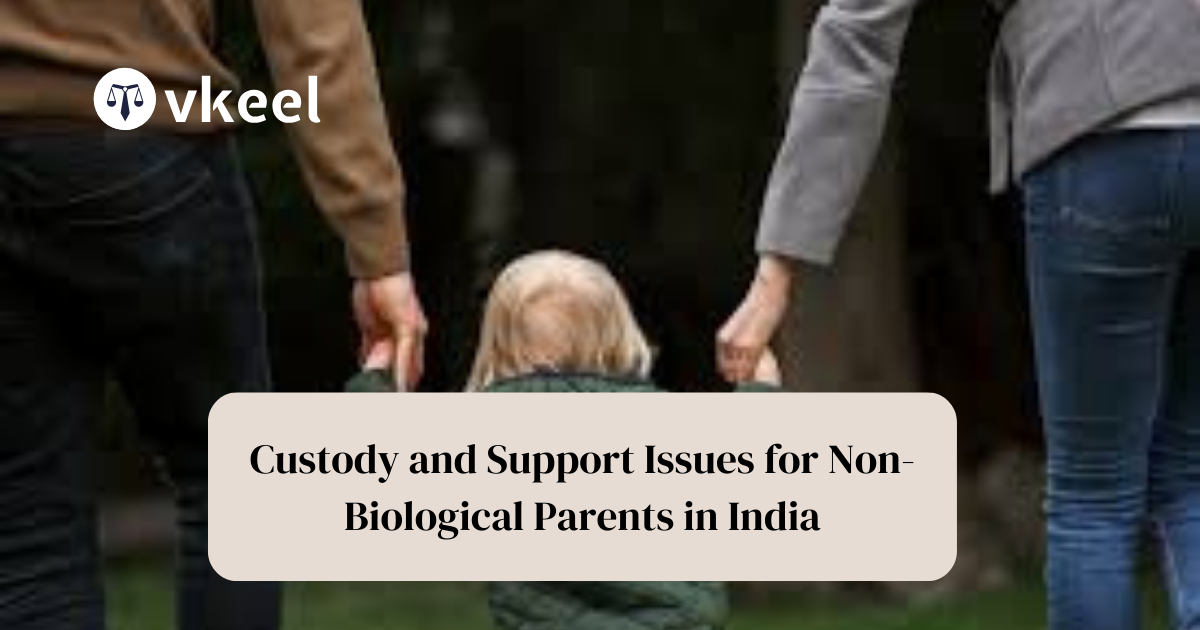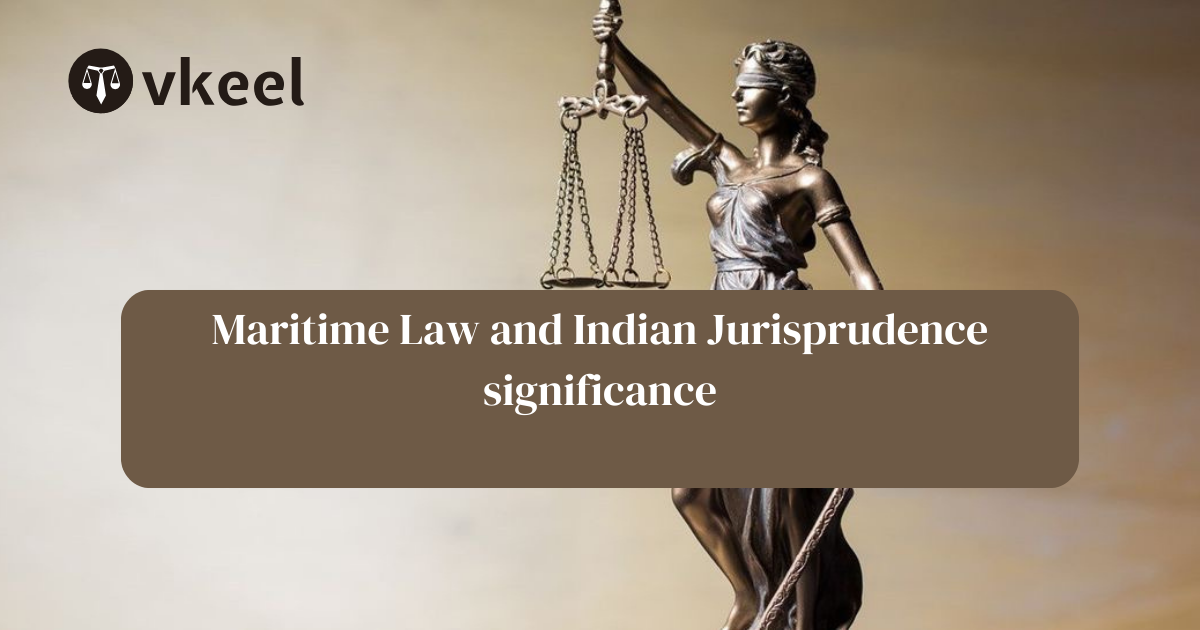Custody and Support Issues for Non-Biological Parents in India
By Himanshu Kumar
Table of Contents
Introduction
The concept of family in India is evolving, with increasing recognition of diverse family structures. Non-biological parents, including adoptive parents, step-parents, and guardians, face unique challenges when it comes to custody and support issues.
The primary objective of addressing custody and support issues for non-biological parents in India is to ensure the best interest and welfare of the child while providing a legal framework that recognizes and supports diverse family structures. This involves granting non-biological parents, such as adoptive parents, step-parents, and guardians, the same rights and responsibilities as biological parents to foster a stable and nurturing environment for the child. By ensuring that these parents can seek custody and support without facing undue legal hurdles or social stigma, the legal system aims to protect the child’s emotional, psychological, and physical well-being.
Additionally, the objective includes creating legal clarity and procedural efficiency in custody and support matters involving non-biological parents. This encompasses amending existing laws and introducing new legislation to remove ambiguities, streamline processes, and ensure timely resolutions. Promoting awareness among non-biological parents about their rights and available legal recourses is also critical. Ultimately, the goal is to foster an inclusive and supportive environment where the child’s needs are prioritized, and all parents are empowered to provide care and support effectively.
Legal Framework for Non-Biological Parents
In India, the rights of non-biological parents are primarily governed by a combination of statutes, judicial pronouncements, and personal laws. Key statutes include the Hindu Adoption and Maintenance Act, 1956, the Guardians and Wards Act, 1890, and the Juvenile Justice (Care and Protection of Children) Act, 2015.
1. Hindu Adoption and Maintenance Act, 1956
Under the Hindu Adoption and Maintenance Act, 1956, any Hindu male or female can adopt a child. This act lays down the procedures for a legal adoption, providing the adoptive parents with all the rights and responsibilities of biological parents. The adopted child is treated as a natural-born child of the adoptive parents, ensuring that custody and support issues are addressed within the framework of parenthood.
2. Guardians and Wards Act, 1890
The Guardians and Wards Act, 1890, is a secular law that applies to all Indian citizens, regardless of their religion. This act allows for the appointment of guardians for minors and details the duties and responsibilities of guardians. Non-biological parents, such as step-parents or other guardians, can seek custody under this act if it is in the best interest of the child.
3. Juvenile Justice (Care and Protection of Children) Act, 2015
The Juvenile Justice Act, 2015, introduced significant reforms to child protection laws in India. It provides a comprehensive framework for the adoption of children and ensures that adoptive parents have the same rights and responsibilities as biological parents. The act emphasizes the best interest of the child, ensuring that custody and support issues are resolved in favor of the child’s welfare.
Key Case Laws
Several landmark judgments have shaped the legal landscape for non-biological parents in India. These cases highlight the evolving understanding of family and the importance of the child’s best interest in custody and support decisions.
1. Githa Hariharan v. Reserve Bank of India (1999)
In the landmark case of Githa Hariharan v. Reserve Bank of India, the Supreme Court of India addressed the issue of guardianship rights of mothers. The court held that both parents have equal rights to be the natural guardians of their children. This judgment was significant for non-biological parents, as it reinforced the principle of equality and the best interest of the child in custody matters.
2. Laxmi Kant Pandey v. Union of India (1984)
This case is pivotal in the context of adoption laws in India. The Supreme Court laid down guidelines for inter-country adoptions, emphasizing the need to safeguard the best interests of the child. The court’s directives have influenced domestic adoption processes, ensuring that adoptive parents are thoroughly vetted and the child’s welfare is paramount.
3. Vandana Shiva v. Vikas Sivasubramaniam (2005)
In this case, the Madras High Court dealt with the custody rights of a step-parent. The court ruled that a step-parent could be granted custody if it is in the best interest of the child. The judgment highlighted the importance of the child’s emotional and psychological well-being, acknowledging the role of non-biological parents in providing a stable and nurturing environment.
Amendments and Legislative Changes
The evolving social dynamics and increasing recognition of diverse family structures have prompted several amendments and legislative changes to address the rights of non-biological parents in India.
1. Amendment to the Juvenile Justice Act, 2015
The Juvenile Justice (Care and Protection of Children) Act, 2015, was a significant step forward in recognizing the rights of non-biological parents, particularly adoptive parents. The act streamlined the adoption process, ensuring that adoptive parents are given the same legal status as biological parents. This amendment has made it easier for non-biological parents to seek custody and support for adopted children.
2. The Personal Laws (Amendment) Act, 2010
The Personal Laws (Amendment) Act, 2010, brought significant changes to the Hindu Adoption and Maintenance Act, 1956. The amendment removed gender biases in adoption, allowing both men and women to adopt children with equal rights. This change has empowered non-biological parents, particularly women, to adopt and seek custody and support for children.
3. The Surrogacy (Regulation) Bill, 2020
The Surrogacy (Regulation) Bill, 2020, aimed to regulate surrogacy in India and protect the rights of all parties involved, including non-biological parents. The bill introduced provisions to ensure that the commissioning parents, who are non-biological parents, have legal rights and responsibilities towards the child born through surrogacy. Although the bill is still under discussion, it represents a significant step towards addressing the rights of non-biological parents in the context of surrogacy.
Challenges Faced by Non-Biological Parents
Despite the legal provisions and judicial pronouncements, non-biological parents in India face several challenges in custody and support matters.
1. Social Stigma and Acceptance
Non-biological parents, especially in cases of adoption and surrogacy, often face social stigma and a lack of acceptance. Society’s traditional view of family can lead to discrimination and difficulties in asserting custody and support rights. This stigma can impact the child’s well-being and the non-biological parent’s ability to provide a stable environment.
2. Legal Ambiguities and Delays
The legal process for non-biological parents seeking custody and support can be cumbersome and time-consuming. Legal ambiguities and delays in the court system can prolong custody battles and create uncertainty for the child and the parents. Streamlining legal procedures and ensuring timely resolutions are essential to address these challenges.
3. Lack of Awareness and Resources
Many non-biological parents are unaware of their legal rights and the procedures to seek custody and support. There is a need for greater awareness and resources to help these parents navigate the legal system. Legal aid and support services can play a crucial role in empowering non-biological parents to assert their rights.
The Way Forward
To address the challenges faced by non-biological parents and ensure the best interest of the child, several measures can be considered:
1. Strengthening Legal Frameworks
Strengthening the legal frameworks to provide clearer guidelines for custody and support issues involving non-biological parents is crucial. This includes amending existing laws and introducing new legislation that recognizes the diverse family structures in modern society.
2. Promoting Awareness and Education
Raising awareness about the rights of non-biological parents and providing education on legal procedures can empower parents to seek custody and support. Public awareness campaigns and legal aid services can play a significant role in this regard.
3. Ensuring Child Welfare
The primary focus of custody and support decisions should always be the best interest of the child. Ensuring that the child’s emotional, psychological, and physical needs are met is paramount. This includes providing a stable and nurturing environment, regardless of whether the parent is biological or non-biological.
4. Addressing Social Stigma
Addressing social stigma and promoting acceptance of diverse family structures is essential for the well-being of non-biological parents and children. Public awareness campaigns, community programs, and support groups can help change societal attitudes and foster a more inclusive environment.
Conclusion
The legal landscape for non-biological parents in India is evolving, with significant strides made through legislation and judicial pronouncements. However, challenges remain in ensuring fair treatment and support for non-biological parents. By strengthening legal frameworks, promoting awareness, and addressing social stigma, India can create a more inclusive and supportive environment for all families. The ultimate goal should be to ensure the best interest of the child, recognizing the vital role that non-biological parents play in providing love, care, and stability.
Disclaimer:
The information provided in the article is for general informational purposes only, and is not intended to constitute legal advice or to be relied upon as a substitute for legal advice. Furthermore, any information contained in the article is not guaranteed to be current, complete or accurate. If you require legal advice or representation, you should contact an attorney or law firm directly. We are not responsible for any damages resulting from any reliance on the content of this website.










